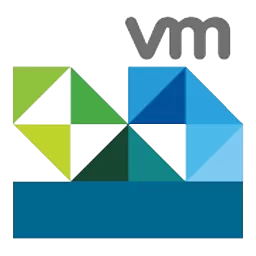Run any virtual machine. Run virtual machines created by VMware Workstation, GSX Server or ESX Server. VMware Player also supports Microsoft virtual machines and Symantec LiveState Recovery disk formats.
What are the different editions of VMware Workstation?
The VMware Workstation product line consists of two products: Workstation Pro and Workstation Player. Collectively they are referred to as 'VMware Workstation,' and when there are differences, they are called out.
What are the differences between Workstation Pro and Workstation Player?
Workstation Pro and Workstation Player share the same hypervisor technology, but with unique user interfaces for different types of use.
Workstation Player is designed for a single graphical VM operation, or for command line operation with 'vmrun' or ' for running a different operating system in a secure isolated sandbox on a PC.
Workstation Pro is designed for IT professionals and developers, providing a more fully featured interface with capabilities for running multiple virtual machines at the same time. Workstation Pro can provide and configure virtual networking, create clones, connect to vSphere, show multiple VMs at the same time in a tabbed UI and more.
Do I need to dual boot or repartition the disk?
No, VMware Workstation uses your computer's file system and creates files that map to a virtual machine's disk drives, so there is no need to create a partition for each operating system. If you already have another OS with dual boot installed on your computer, you can use VMware Workstation to run the other OS in a virtual machine on your host operating system.
Instead of dual booting, you can run both operating systems simultaneously and seamlessly switch from one operating system to another with a click of your mouse.
Features
- Access host PC devices. Use host CD/DVD drives, network adapters, and plug-and-play USB devices.
- Copy and paste. Copy text and files between the virtual machine and the host PC.
- Drag and drop. Drag and drop files between a Windows host PC and a Windows virtual machine.
- Multiple networking options. Virtual machines can share or obtain new IP addresses or be isolated from the network and host.
- 32- and 64-bit host and guest operating system support. Run a wide variety of virtual machines containing 32- and 64-bit operating systems simultaneously on the same physical PC. Compatible 64-bit guest operating systems include select Microsoft Windows, Red Hat, SUSE, and FreeBSD distributions.
- Adjustable memory. Tune virtual machine memory for optimal performance.
- Configurable shutdown. Power down or suspend the virtual machine when closing VMware Player.
- Integrated Google Search. VMware Player includes Google search capabilities, fully integrated for conveniently searching the web without launching a browser.
What's New
Introducing vmcli
vmcli is a command-line tool included with VMware Workstation Pro, enabling users to interact with the hypervisor directly from a Linux or macOS terminal, or the Windows command prompt. With vmcli, you can perform a variety of operations such as creating new virtual machines, generating VM templates, powering on VMs, and modifying various VM settings. Additionally, you can also create scripts to run multiple commands sequentially. For more information, see Using VMware Workstation Pro.
New Guest Operating System Support
- Windows Server 2025
- Windows 11 Version 23H2
- Ubuntu 24.04
- Fedora 40
New Host Operating System Support
- Windows Server 2025
- Windows 11 Version 23H2
- Ubuntu 24.04
- Fedora 40
Resolved Issues
- VMware KVM crashes while running the 'vmware-kvm --preferences' command
- VMware KVM crashes when you try to open its Preferences dialog by using the 'vmware-kvm --preferences' command. This issue is resolved.
- Virtual machines run unusually slowly on Windows hosts
- Running virtual machines on Windows hosts as a non-administrator user might result in high host CPU usage and poor guest performance. This issue is resolved.
- Workstation installation fails on Linux hosts with a compilation error
- If you try to install Workstation on Linux hosts with kernel version 6.8, you receive a compilation error. For details, see https://knowledge.broadcom.com/external/article?legacyId=80807. This issue is resolved.
Security Issues
- OpenSSL has been updated to 3.0.14
- Expat has been updated to 2.6.2
- 7zip has been updated to 23.01
Known Issues
- CentOS 9 Stream with kernel versions later than 5.14.0-432 is not supported on Workstation Pro 17.6 as a host
- Workaround: None
- Inline product upgrade from versions earlier than 17.6 will not be automatic for Workstation Pro on Windows Host
- Due to the migration from VMware services to Broadcom, Workstation Pro cannot automatically apply this upgrade.
- Workaround: Refer to the KB368734 article for downloading and installing Workstation Pro from the Broadcom support portal.
- The multi-monitor feature might not work correctly in specific topologies
- In specific situations, based on different hardware and topologies, the multi-monitor feature does not work as expected. You might see issues like reverting the topology to a single screen, or not cycling through monitors.
- Workaround: None.

